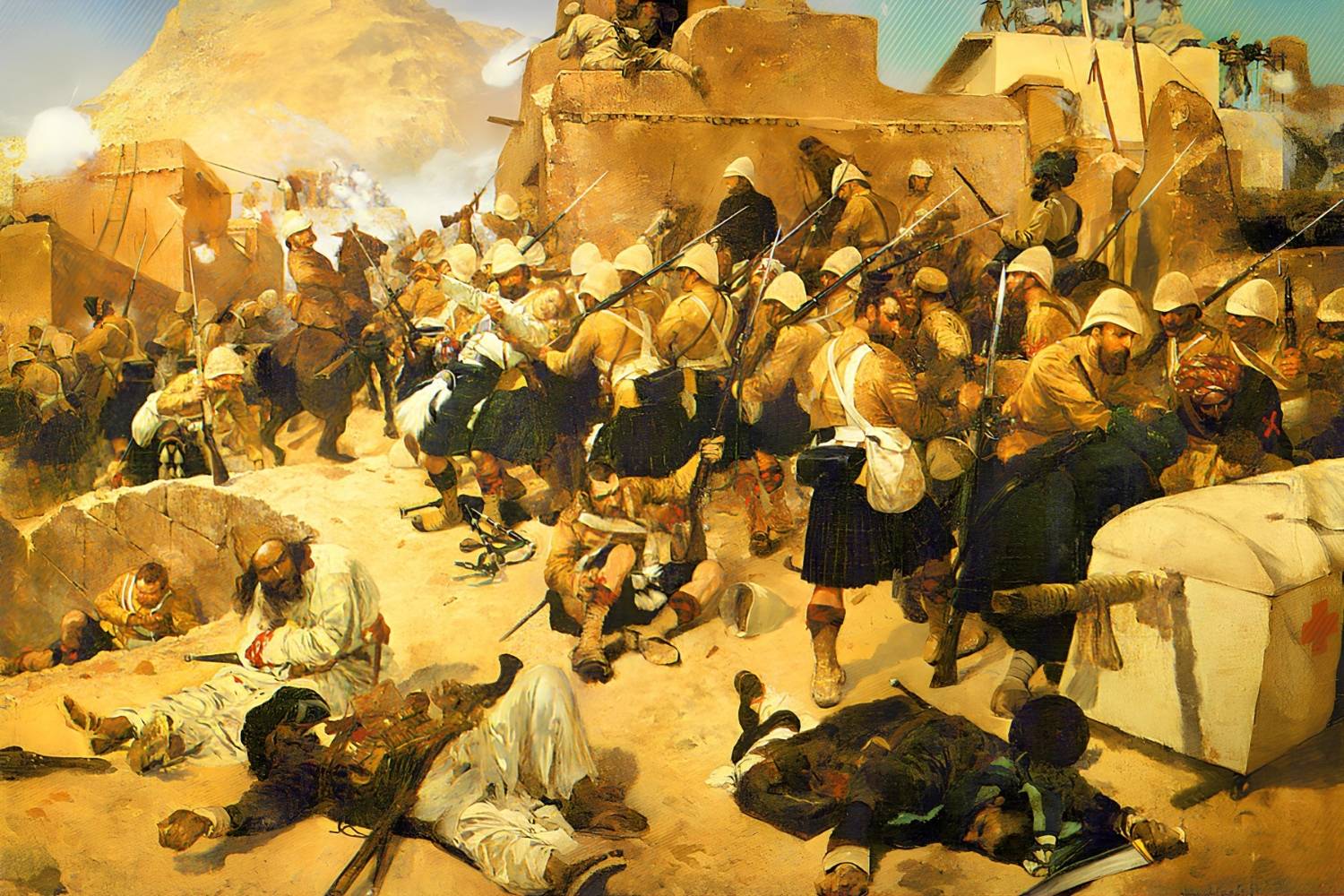
What sparked the Pashtun Revolt in Kandahar? The Pashtun Revolt in Kandahar ignited due to a mix of political, social, and economic factors. British colonial policies played a significant role, as their attempts to control the region clashed with the fiercely independent Pashtun tribes. Heavy taxation, land disputes, and interference in local governance fueled resentment. Additionally, the British support for rival tribes and leaders created further divisions. The Pashtuns, known for their warrior culture, saw these actions as direct threats to their autonomy and way of life. This combination of grievances led to a widespread uprising, marking a pivotal moment in the region's history.
Key Takeaways:
- The Pashtun Revolt in Kandahar, led by Ayub Khan, was a successful uprising against British colonial rule in the late 19th century, inspiring Afghan unity and national pride.
- The revolt at Maiwand, including the bravery of Malalai, continues to be celebrated in Afghanistan, symbolizing the enduring spirit and desire for independence among the Afghan people.
The Pashtun Revolt: An Overview
The Pashtun Revolt in Kandahar was a significant event in Afghan history. This uprising had profound impacts on the region's politics, society, and culture. Here are some fascinating facts about this historical event.
-
The Pashtun Revolt in Kandahar occurred in the late 19th century, primarily between 1880 and 1881.
-
This revolt was a reaction against British colonial rule and their influence in Afghanistan.
-
Ayub Khan, a prominent Afghan leader, played a crucial role in leading the revolt.
-
The Battle of Maiwand, fought on July 27, 1880, was a pivotal moment in the revolt.
-
Afghan forces, led by Ayub Khan, defeated the British Indian Army at the Battle of Maiwand.
Key Figures and Leaders
Understanding the key figures involved in the Pashtun Revolt provides insight into the motivations and strategies behind the uprising.
-
Ayub Khan was the son of Sher Ali Khan, a former Emir of Afghanistan.
-
Ayub Khan's leadership and military tactics were instrumental in the success of the revolt.
-
Malalai of Maiwand, a young Afghan woman, became a national hero for her bravery during the Battle of Maiwand.
-
Malalai's actions inspired Afghan troops to continue fighting despite heavy losses.
-
British General Burrows led the British Indian Army during the Battle of Maiwand.
Causes of the Revolt
Several factors contributed to the outbreak of the Pashtun Revolt in Kandahar. These causes were both immediate and long-standing.
-
The British imposition of the Treaty of Gandamak in 1879 angered many Afghans.
-
The treaty ceded significant Afghan territory to British control.
-
Economic hardships and heavy taxation under British rule fueled discontent.
-
Cultural and religious differences between the British and the Pashtun people also played a role.
-
The desire for Afghan independence and self-determination was a driving force behind the revolt.
Impact on Afghan Society
The Pashtun Revolt had lasting effects on Afghan society, shaping the nation's future in various ways.
-
The revolt strengthened Afghan national identity and unity.
-
It highlighted the importance of local leadership and resistance against foreign rule.
-
The success of the revolt inspired other anti-colonial movements in the region.
-
The Battle of Maiwand became a symbol of Afghan resilience and bravery.
-
The revolt led to increased political instability in Afghanistan, with various factions vying for power.
Legacy of the Pashtun Revolt
The legacy of the Pashtun Revolt continues to influence Afghanistan's history and culture today.
-
Ayub Khan's victory at Maiwand is celebrated annually in Afghanistan.
-
Malalai of Maiwand is remembered as a national heroine and symbol of Afghan women's strength.
-
The revolt is often cited as a key example of successful resistance against colonial powers.
-
The events of the revolt are taught in Afghan schools as part of the nation's history curriculum.
-
The Pashtun Revolt remains a source of pride and inspiration for many Afghans, symbolizing their enduring spirit and desire for independence.
Final Thoughts on the Pashtun Revolt in Kandahar
The Pashtun Revolt in Kandahar stands as a significant chapter in history, highlighting the resilience and determination of the Pashtun people. This revolt, marked by fierce battles and strategic maneuvers, showcased the Pashtuns' unwavering spirit against foreign domination. Understanding these events offers a deeper appreciation for the region's complex history and the enduring legacy of its people. The revolt's impact reverberates through time, influencing modern-day Afghanistan's socio-political landscape. By delving into these facts, we gain insight into the challenges and triumphs that shaped the Pashtun identity. This historical episode serves as a reminder of the power of unity and resistance in the face of adversity. As we reflect on these facts, it's clear that the Pashtun Revolt in Kandahar remains a testament to the enduring strength and resilience of the Pashtun people.
Frequently Asked Questions
Was this page helpful?
Our commitment to delivering trustworthy and engaging content is at the heart of what we do. Each fact on our site is contributed by real users like you, bringing a wealth of diverse insights and information. To ensure the highest standards of accuracy and reliability, our dedicated editors meticulously review each submission. This process guarantees that the facts we share are not only fascinating but also credible. Trust in our commitment to quality and authenticity as you explore and learn with us.
